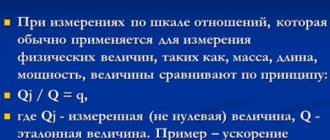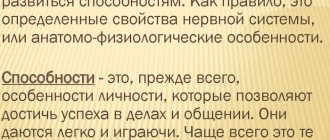Author of the material:
Inna Trofimova
writer, psychologist, gestalt therapist
When we describe a bad day, we often use the phrase “I’m a mess today.” Sometimes the disassembled state lasts too long to ignore. Personal life collapses against the backdrop of career achievements, and dreams of a perfect body lead away from connection with the real world. Life is a bright puzzle. To fold it completely means to achieve the integrity of one’s own “I”. Sometimes details have to be carefully and painstakingly turned out by hand, but this is the only way to know yourself.
Generalized brief interpretation
So, according to the explanatory dictionary, integrity is a general characteristic of objects or objects that have a complex internal structure. This concept is the personification of autonomy, self-sufficiency, as well as the integration of certain objects. Additionally, we can say that integrity is a characteristic of quality, uniqueness, originality that was formed in a certain environment and corresponds only to a specific object. In other words, the term indicates a combination of a certain number of components in one object, which develop and function together, thus forming a closed and complete system. Such a system can be any biological unit (both a cell and a person), a state or small society, software, etc.
The main reasons for lack of integrity
Each person is individual, no one is absolutely similar or identical. Therefore, the reasons for the emergence of unfreedom can be completely different. Now we will look at those that are most common and prevent us from manifesting ourselves as we are.
Childhood trauma
Criticism from adults who are so close and loved is quite traumatic. There is a fear of losing their love, which is why the child sometimes chooses to hide his feelings and desires, trying to please them, to be obedient, comfortable, and the best.
The child does not have a clear opinion about what he is, he is just being formed and gradually explores every part of himself. In the meantime, he does not have his own knowledge and experience, he relies on what others tell him. And he believes, especially those who are an example and authority for him. After all, every random word thrown, especially in a fit of feelings, can affect his self-esteem.
By the way, here you can take a self-esteem test.
Depreciation
Even as adults, we tend to believe those we love. But we don’t always choose people as partners or friends who are capable of giving recognition and, in general, building healthy relationships. Therefore, we get hurt by words, are manipulated and try to live up to their expectations. Simply be “good”.
Avoiding Injury
And sometimes it happens the other way around: wanting to avoid pain, having had an unpleasant experience in the past, a person closes down. That is, he stops trusting the world, believing that in this way it preserves its integrity. But in fact, by being so zealously concerned about safety, he loses a lot by being in a personally organized internal “prison.”
Following stereotypes
To avoid chaos, society comes up with various stereotypes of behavior. It's more convenient to manage. And then you have to bend over backwards to meet them. Ignoring true needs. That’s when people work in jobs that don’t bring joy and satisfaction, build marriages because it’s necessary, and spend money to maintain an image of success. They also try in every possible way to get rid of labels, such as “unworthy man”, “bad mother” and so on.
Passing the buck
When a conflict arises, a rare person, first of all, tries to figure out what contribution he made so that a quarrel arose. It's easier to blame someone else. That's how it is with shortcomings. Sometimes we desperately don’t want to accept that we are not perfect and make mistakes. This is especially difficult for individuals who have an “excellent student complex.”
Wednesday
It happens that people, very valuable and important, categorically do not want to accept our otherness. Some people, for personal reasons, cannot cope with anger. And then he forbids his partner to test it. And in order to stay in a relationship with him, you have to adapt and learn to hold back your anger. Over time, there is a loss of freedom of presentation. It’s as if the right to feel what is felt disappears.
Science and philosophy
Obviously, the word “integrity” is a derivative of “whole” or “one.” Often we use them to characterize something separate that has fully formed and become self-sufficient. The example provided above is the cell as a biological unit. It is framed by a special membrane through which the intercellular substance cannot leak, and inside it there are all those components that ensure the necessary metabolism within this system. All living organisms - people, animals, plants - are made of such cells. Cells are part of each internal organ, determining its integrity. Together, we get a full-fledged living organism, the work of which is coordinated and does not depend on others like it. But it depends on the environment - air, water, light. These components, consisting of molecules, are also self-sufficient and individual, but in combination with humans, animals and all other inhabitants of our planet they form biomass. In turn, biomass is also a single structure within which all living organisms function harmoniously.
How to become a holistic person: advice from tarot readers
In the Tarot system, integrity is
one of the most important tasks of the individual. The 22 Major Arcana in the deck reflect how a person goes his way from the Jester to the World - from an unconscious personality to an integral and harmonious one. On this path, he accepts within himself the light and the dark, the higher and the lower, the true and the false.
Find Wholeness
Simple techniques for working with Tarot will help you:
- Calculation of the Arcana of Fate. He will show his true purpose.
- Exploring the Tarot as your own path. Set aside 22 days and take turns going through all the Major Arcana from the Jester to the World. Find your positive and negative qualities and actions in everyone. Record your observations in a diary.
- Comparison of Consciousness and Subconsciousness. Draw 2 random Major Arcana - for Consciousness and Subconsciousness. Assess whether these cards are consistent to understand how harmonious and holistic you are as a person
.
One of the most effective practices in working with the Tarot is meditation on the Sun and World arcana.
Meditation on the Arcana Sun
The Sun card will help to reveal creativity, inner strength, will and self-confidence.
Every morning at sunrise, look at the picture of the lasso, mentally immersing yourself in it. Try to feel what the character on the card feels - freedom and happiness to be yourself, a surge of strength and inspiration. Dedicate 21 days in a row to such meditations.
Meditation on the Arcana World
After 3 weeks of working with the Sun lasso, begin meditation on the World map. It will help you feel like a harmonious, self-sufficient and holistic person.
.
Every evening, place a candle in front of you, look at the World lasso and mentally immerse yourself in the drawing. Feel like a character in this card, feel your uniqueness, thank fate for your strengths and weaknesses. Continue meditating for 21 days.
We also recommend an article about gratitude and other esoteric practices: happiness meditation, reading mantras, any type of meditation to calm the mind and internal harmonization, yoga.
Psychology
Using the example of the exact sciences, we have just looked at what integrity is. Now let's turn to psychologists and the terms they use most often. One of these is the “principle of personal integrity.” Human personality is a spiritual concept. It cannot be touched, inhaled or felt like, say, a person or water. But personality is built on the basis of components that form and improve it. Among these we will name life experience, mistakes, suffering, joys, friendship and betrayal, love, building a family, career growth, personal preferences and passions, interests and much more. Personality formation is an extremely individual process. In the history of mankind, there are people who became self-sufficient and independent at a very young age. And in some cases it happens that a mature person, who has spent more than half a century on Earth, has still not been able to make his spiritual personality holistic and self-sufficient.
How to find integrity? Simple exercises from psychologists
There are two ways to achieve integrity
– this is serious work on yourself or therapy with a specialist. To get started, we suggest you try three psychological exercises.
Integrity Exercise #1
Write 10 of your qualities, the most obvious ones that come to mind first. Then write 10 qualities that are completely opposite to them.
For example: “I am good-natured” and “I get angry over trifles.”
Now get to know your real self, the second list is you too. Recognize and accept these traits in yourself.
Exercise No. 2
Write 5 qualities in which you are better than others. Then 5 more qualities in which you are worse than others or think that someone is superior to you in this.
Now remember that each person is individual, each has his own path, purpose and destiny. There is no point in comparing who is better and who is worse. You will not become as talented an artist as your friend, and he will never understand astrology the way you learned.
Get back to yourself everything that you constantly project onto other people - both talents and shortcomings.
Exercise #3
Allow yourself to be different, to be an imperfect person.
Catch yourself every time you do something not spontaneously, but to please others. Notice situations in which you are trying to appear to be someone you are not, to embellish yourself.
Become your own controller, monitor habitual behavior scenarios and carefully correct them. Observe and work on yourself for at least 21 days, and preferably 3 months - that’s how long the brain needs to form and strengthen new neural connections - new habits.
Become a whole person
It’s not easy, it’s a lot of work that requires constant self-development and discipline. But this work will bring you many amazing discoveries about yourself, and will gradually change your life beyond recognition.
Do you consider yourself a whole person? Write in the comments, let's discuss!
Are you interested in getting a new profession and learning astrology for beginners ? Start learning Vedic astrology now! At Lakshmi-Ameya Institute you will gain knowledge that will help you improve your life and the lives of your loved ones. And strology - studying on your own will not give you what you will get by studying with experienced mentors. Our teachers are hereditary astrologers, Gurus from India with extensive experience, having a scientific degree in astrology. We give you knowledge and practice, teach you how to create a personal brand, tell you how to promote yourself on the market, help you find your first clients and change your life. We provide not only online training in astrology , but also other Vedic sciences: palmistry, numerology, Ayurveda.
Our students have the opportunity to take part in various activities, offline meetings, conferences and other projects of the Institute: Offline conferences and meetings with teachers (see the report on how we became the best astrology school 2020 based on the results of a prestigious award) ,
Spiritual tour to India , Astroclinic , Seva - food of the world , Karmadel , Astrobattle .
State borders
Political scientists and historians constantly have to deal with such a concept as territorial integrity. Its essence is no different from everything described above. The only difference is that in this case we are talking about the specific land borders of a certain country, its national language, flag, anthem and other attributes. Previously, in the political concept, the principle of state integrity was also based on national principles. If the assimilation of peoples took place, it was insignificant. Therefore, Latins lived on the territory of modern Italy, Celts lived in France, Goths lived in Germany, and Slavic ancestors lived on our lands. Today, the peoples who inhabit a particular state do not affect its integrity.
Various approaches and theories
Integrity in psychology is a general concept given in the dictionary of psychological terms and implying autonomy, internal consistency and at the same time independence of an object or phenomenon from the influence of other environmental phenomena surrounding it (“Dictionary of Psychological Terms”).
Depending on the object in psychology they differ:
Personal integrity
Integrity in psychology is, in relation to a person, a combination of its parts, creating a strong and harmonious foundation. Giving this definition of personality integrity, popular psychologist and author of many scientific works N.I. Kozlov speaks about the external, or general integrity of the personality, meaning the harmonious unity of its physical, mental, spiritual and moral life.
Personal integrity presupposes the correspondence of a person’s inner life with his external activities. For example, a true Christian believer will not be able to serve in the army, since he will be forced to violate the commandments regarding the refusal to kill and cause harm to human health. Carrying out such actions that contradict his inner beliefs can violate his integrity and lead to serious mental anguish.
In psychology, the internal integrity of a person is usually understood as a person’s ability in critical situations to remain true to his life position and holistic orientation. Such a person must be open to people and at the same time be in harmony with his inner world, and, if necessary, openly declare his beliefs.
A holistic personality, as interpreted by N.I. Kozlova is an individual with a stable system of values and worldview, who has confidence in the correctness of his chosen thoughts and actions, and is ready to be held accountable for all his actions. A striking example of a holistic personality, according to psychologists, is Jesus Christ.
Psychologist and head of the Baikal Instructor School TCTC, author of many articles Chursina T.M. notes that the psychological integrity of the individual in its structure resembles an “inner core”, manifested in a high level of satisfaction with life and the joy of human existence.
According to the specialist, such a person is very pleasant to communicate with, prone to optimism, creation and support of the positive aspirations of other people. A person with integrity is rational in his decisions and acts based on the best intentions, but at the same time is able to stubbornly resist the destructive actions of others.
The antipode of a holistic personality in psychology is the concept of a “fragmented personality,” the internal elements of which are in constant conflict with each other and do not strive for common interaction.
According to psychologist N.I. Kozlov, psychological integrity is not genetically inherent in a person, but is formed under the influence of the immediate environment and external influences.
Ways to form personal integrity:
| Formation method | Characteristics of a holistic personality |
| Power model | According to N.I. Kozlov, is based on the rigidity of beliefs and the ability to defend these beliefs in direct and open conflict. This model of integrity, according to psychologists, is more characteristic of men and is characteristic of people with a certain level of development, whose beliefs include high morality and the concept of spirituality. A striking example of such a person is the English utopian Thomas More, who died on the scaffold. |
| Model of internal harmony of personality | It is based on internal flexibility and harmony and consists in the internal and external interaction of a person with his environment. According to psychologists, such a person is characterized by:
This model of formation of personality integrity is to a large extent inherent in women, manifesting itself, according to N.I. Kozlov, soft voice intonations, outward kindness and the ability to quickly adapt to changing living conditions (an example of such a person is Mother Teresa of Calcutta). |
Integrity of perception
Integrity in psychology is a person’s ability to perceive, based on the individual’s ability to perceive any object or objective situation as an integral system, even if any of its parts cannot be seen at a certain moment (for example, the internal part of an object).
For the first time reflected in Gestalt psychology by the German scientists M. Wertheimer and W. Köhler, the problem was understood by the integrity of perception - the initial property of the brain, regulated by the laws of the subconscious.
Soviet psychologists understood the integrity of perception as part of the psychological integrity inherent in the person perceiving the object. Moreover, the image that appears in his mind and reflects the existing reality is the totality of all its components, regardless of their presence at a certain moment.
The degree of formation of image clarity at the moment of perception of an object is based on the anticipation of its actually not perceived parts. An example of the integrity of perception could be a person who observed only the head and shoulders of a passerby, but thanks to the integrity of his consciousness, he perfectly understands the position of the arms, torso and body, as well as the gait of the passerby.
Integrity-ego
Integrity-ego is in psychology a commonality of a person’s ideas about himself, allowing him to feel his own uniqueness.
E. Erikson, in his “Theory of Personality Development,” covering the entire life space of an individual (from infancy to old age), notes that the child’s ego (“I”) is gradually formed under the influence of historical conditions, changing social prescriptions, cultural aspects and value systems.
The “I” (ego) in Erikson’s theory is an autonomous system that interacts with reality through perception, thinking, attention and memory. Thus, a person interacting with the environment in the process of his development gradually becomes more competent in his ideas about his own essence.
Ego integrity is a characteristic that allows a person to feel unique, helps to fight the despair that appears with aging and is described by him as an opportunity to gain wisdom (“ego integrity before despair”). In accordance with the “Theory of Development”, at the final stage, having gone through identity crises, the individual conducts a “review of his life”, while experiencing either satisfaction from what has been achieved, or despair and pain for previously made mistakes.
Soviet and Russian psychologist and publicist N.I. Kozlov understood the “integrity of the ego” (ego-identity) as a feeling that arises in an individual when he realizes the continuity of his “I” at different stages of life. Ego-identity, also, according to the scientist, is the main factor responsible for the formation of personal maturity.
Z. Freud considered the integrity of the ego as an intermediate part between the id and the superego, responsible for the connection and balance of a person with the external world around him. The task of the ego, according to S. Freud, includes the need to achieve balance and find a compromise between the primitive impulses of the individual, morality and existing reality.
It was followed by defining ego-integrity as a necessary part for the formation of the personality structure.
Gail Sheehy defined the integrity-ego stage of development of “second adulthood”, which occurs at the age of 65-85+.
In a transpersonal approach
The transpersonal approach in psychology defines integrity as the harmonious fusion of physical, emotional, mental and spiritual aspects of well-being, as well as social responsibility. A characteristic difference between the technique and other psychological approaches is the inclusion, in addition to the rest, of a spiritual component.
The basis of the content of transpersonal psychology is life experience that allows one to cope with spiritual problems of the individual through mythical, archetypal, personal or transpersonal components.
K. Jung was one of the first to appreciate the value of the transpersonal psychological approach as a way to free a person from pathological mental suffering.
Subsequently, representatives of transpersonal psychology (S. Grof, K. Wilber, T. McKenna) criticized C. Jung’s theory, believing that the very concept of self is harmful because it misleads a person about his nature.
The founders of the transpersonal approach imagine the surrounding world as an integral structure, with the simultaneous presence in it of many parallel and simultaneously existing realities that have equal ontological status and do not have clear boundaries between themselves, previously invented by psychologists.
The “concept of self” and “theories of personality” introduced by S. Freud, C. Jung and E. Erikson according to the transpersonal psychological approach were recognized as harmful, as misleading a person regarding his true nature.
The world here is interpreted as an integral arena of action of “above-world” forces, aimed at self-knowledge, and a person is understood not as a subject of activity, but as a temporary form that takes on a certain “spirit”. The experiences and experiences of an individual are understood only as fragments of the experience of this “spirit”.
In Gestalt theory
Founded by F. Perls, Gestalt therapy takes as its basis a holistic approach to the study of man, with all his mental, physical, spiritual and social aspects. Specialists working in this direction help people understand the processes happening to them at this very moment, thereby teaching them to accept responsibility for all events occurring in life, as well as possible changes.
Perls himself defined “gestalt” as a single whole, which, when destroyed, manifests itself in many fragments. The form he created invariably strives for unity, and in its absence leads a person to an incomplete situation that puts pressure on him.
According to Perls, there may be numerous unfinished gestalts hidden in people themselves, which can be overcome quite easily after careful study and elaboration. A huge advantage of Gestalt therapy is the ability not to try to penetrate the unconscious part, but to consider problems that are on the surface.
Integrity in Gestalt therapy is directly related to a person being considered exclusively as an integral being, without artificial division into the physical and mental, which violates a person’s understanding of his inner world. Integrity here is based on the interaction of the individual with the space around him, being in contact with it and exerting a certain influence on it.
The concept of “integrity” in psychology is closely related to the study of personality, its psychological, social and spiritual aspects. Originating from the term “self” introduced by C. Jung, the principle of integrity is intended to reflect the structure of the human personality, the integrity of its perception, is one of the foundations of Erikson’s “Theory of Human Development”, and is also used as the basis for the development of Gestalt psychology and the transpersonal approach to the study of human consciousness.
Computer Science and Modern Technologies
Integrity is a concept that has recently become widely used in the field of scientific technology, programming and Internet activities. In particular, we are talking about the pristine and immutable source codes of programs and files. For example, let's take the most ordinary website, compiled by a programmer from a number of source codes. For each individual page, certain codes and combinations of symbols, numbers and signs were used. Together they formed a complete picture, which became the basis for the Internet resource. If the source code is handled incorrectly, the activity of the child product will be disrupted. The settings get lost, and as a result the overall picture disappears. It should be separately noted that in this situation it would be appropriate to check the integrity of the information. This can be done by performing a certain set of functions. You can also perform a system rollback to restore the original data.
Man as a complex system
Despite the abundance of information that a person is a complex interaction of social, physical, mental and energetic processes, people often consider only individual components of their essence as an object of change - individual character traits, physical form, appearance.
Is it possible to gain integrity and change oneself as a person by changing only individual components of a complex system called “man”? Is it possible? If we say we want a different car and repaint ours from black to red, will we get the change? Yes and no. Yes - because the color of a car is one of its features that makes it stand out among similar cars. No - because the car, in fact, remained the same, its color just changed, but its engine is just as bad, and it hasn’t gotten any better... So is it worth repainting? Is it even worth asking how to change yourself?
Integrity violation
In biology, psychology, geography and politics, in computer science and high technology - integrity is present everywhere. But in any of these cases this very unity can be broken. As for biology, a striking example of a violation of integrity are diseases, cessation of the functioning of certain organs, and amputations. In psychology, a violation of personality integrity is a variety of mental disorders. Here we can mention schizophrenia, amnesia, psychosis, neurasthenia and many other mental illnesses. An attack on the territory of a state, the destruction of its symbols is the collapse of its unity. This phenomenon is observed during war and armed international conflicts. Well, we have already examined in detail the question of how the integrity of Internet products can be compromised.
Definition
Integrity in psychology is a concept that implies the internal unity of an object, the interconnectedness and interdependence of its parts. Describing the structure of the human psyche, S. Freud singled out the “conscious self,” sexuality and narcissism as the main components that give integrity to the psyche.
The Swiss psychoanalyst and psychologist Carl Jung defined the concept of the term “Self,” which occupies a central part in his theory, as the subject of the integrity of the human psyche. “Self,” according to Jung, predetermines all human life activities aimed at achieving the integrity and unity of its constituent parts. Continuing the psychoanalysis of S. Freud, his student described the self as a central, holistic archetype, including not only conscious, but also unconscious mental being.
The self is considered by Jung as the center of a holistic subject, covering both the conscious and unconscious spheres of his psyche. The self manifests itself in a variety of personified forms: animals, human, godlike, and also non-personified: in the form of lakes, mountains, trees.
The self (integrity) in Jung's theory is the container for all the contradictory disparate elements of the psyche and assumes that it will subsequently acquire integrity or be perceived as a whole.
In his work, K. Jung defines selfhood as an unconscious “image of life purpose”, a person’s realization of his integrity and individuality, by his own will or against it.
In the theory of F. Nietzsche, integrity represents humanity, manifesting itself through difference, while the individual was considered in his theory as an infinite and highest value.
Integrity in Psychology
In the Dictionary of Biomedical Ethics, the concept of “integrity” is a principle of bioethics put forward by European scientists to designate a concept that ensures both physical and mental identity of an individual with himself.
Responsible for personal self-identification, it should not be subject to manipulation or destruction and is directly related to the individual’s life path, as a way of reflecting the most important life events in memory. Doctor of Biological Sciences Arsanausova A.Yu. notes that some medical interventions contribute to disruption of integrity.
Knowing this, the specialist notes that when they are carried out, it is necessary to protect the psychophysical integrity and minimize its possible damage by introducing ethical and legal frameworks governing the conduct of medical and surgical interventions aimed at changing the genetic structure of the individual. According to the specialist, all legal regulations relating to transplantation activities should also be subject to change.
Author of the “Dictionary of Practical Psychologist” Golovin Yu.S. defines integrity as a principle of perception, consisting in the ability of any object to perceive any object or spatial situation as a whole, even if its individual parts are currently hidden from view
Harmony
The integrity of a person lies, first of all, in a harmonious life with oneself, nature and its laws. To live in harmony with the world around us, to know the essence of the principles of the universe, to understand the justice and objectivity in the nature of their actions, to perceive any incident as an experience - these are the canons of an integral individual. Such a person constantly feels peaceful, in balance and feels universal grace. He doesn’t think that life has deprived him of anything, and is happy with everything he has. He knows how the law of cause and effect works, so he does not regret or lament anything. If you do good for people, it will definitely return in the form of prosperity, good luck and success.
Satisfaction of desires
To maintain the integrity of the individual, it is necessary to satisfy a number of needs. You cannot focus only on the physical and emotional factors. Particular attention should be paid to intellectual development and spiritual attractions. In a different state of affairs, internal conflict will be inevitable, and talk about the integrity of the individual will lose all meaning.
Seika-Tanden
This happened when I had been practicing aikido for some time. At one time, I read in the books of V. Zhikarentsev, who devoted many years to this art, about the presence in the human body of a center of gravity - Seika-Tanden - which is located several fingers below the navel. Connecting with it, acting “out of it,” gives a person colossal physical and other capabilities. The ability to connect with it is one of the components of the art of Aikido.
So, during the classes I was able to feel and connect with this center several times. While performing the training elements, I could not manage to “knock down” my partner - a healthy guy whose weight was twice as much as mine. The trainer explained to me several times how to connect with this center, and when I succeeded, my partner simply fell like a blade of grass, without any physical effort on my part. The art of Aikido itself is based on hitting the enemy without applying physical force. And many techniques are associated not only with technical execution, but also with the work of Seika-Tanden. In general, such moments need to be felt...
What is integrity if we consider this concept from the perspective of this information? This, among other things, is the ability to connect with your body, your energy and its elements, knowing which one and why.
Inner happiness
How to understand integrity? What should you do to achieve it? This is a question that worries many. Most people set external success as their goal: a dizzying career, a breakthrough to power, financial independence. But there are few who really care about the purity of their thoughts and actions. As a result, an interesting paradox appears. For example, the richer and more successful a person is, the more he feels inner emptiness, apathy and despondency. Disappointment goes hand in hand with such people. They have constant disgust in their souls. This comes from the fact that they put financial goals first, but did not think about personal development. You have to pay for this with depression and despair. When a person’s spiritual world becomes a full cup, then inner success and happiness come.









